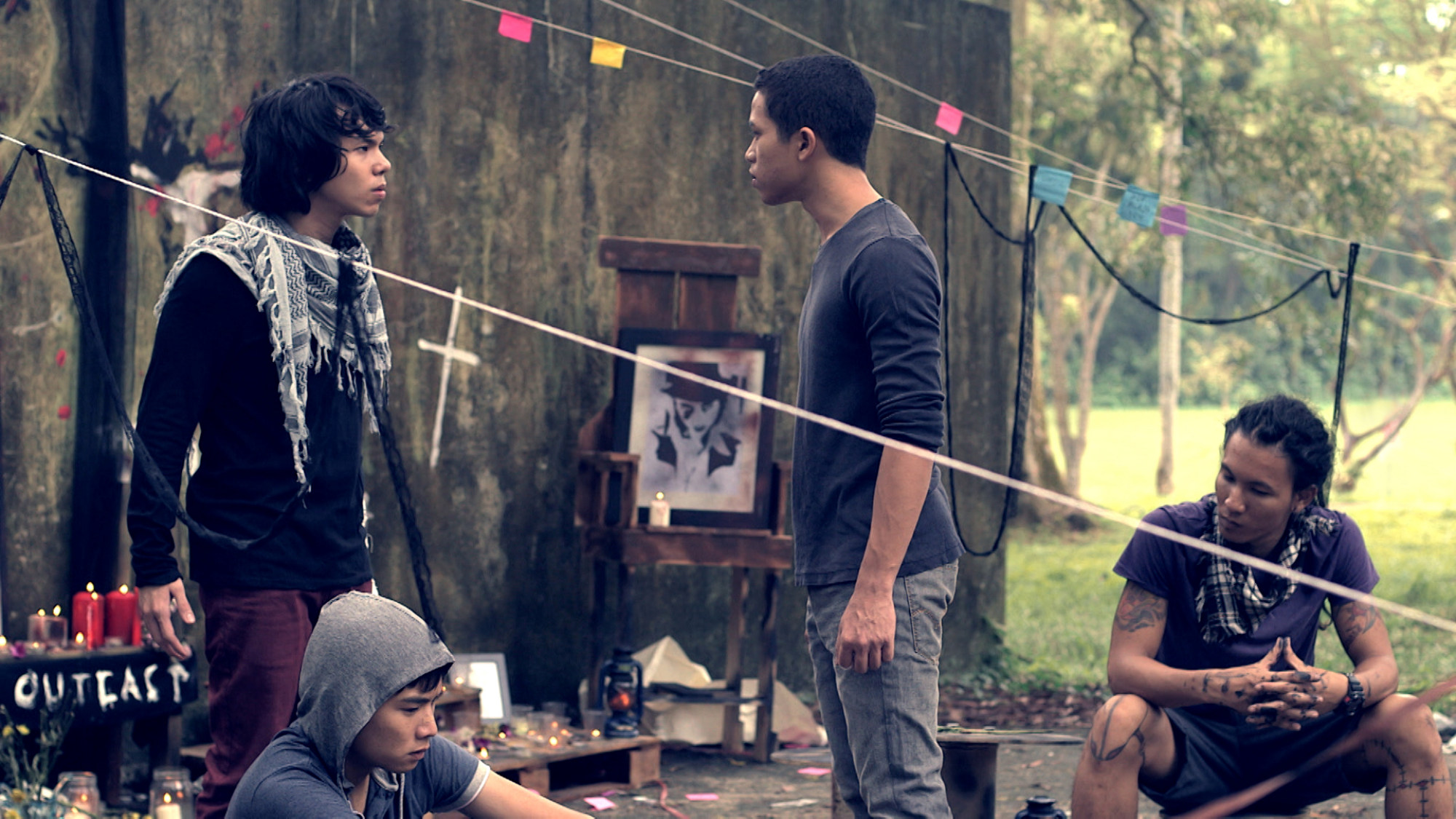Defiance befits Tong, a youthful 44 but a veteran of the filmmaker’s interminable struggle for financing.
Briefly ejected from family life as a teenager who clashed with his father over long hair and an interest in the arts, Tong made his name with a movie about dissent and disobedience greeted rapturously at its world premiere in Los Angeles in 2015 – and which has now re-emerged as a touchstone in debates about victimisation.
Faeryville, written, directed and co-produced by Tong, is a dystopian, alternate-universe tale of college outsiders who take on their bullies. It’s an idealistic, coming-of-age quest – until anarchy explodes.
Call the Midwife actress Lucy Sheen on a lack of diversity in film and TV
Call the Midwife actress Lucy Sheen on a lack of diversity in film and TV
“Be afraid of what you fight for,” as the poster tagline puts it.
Screenings at film festivals in California and Brisbane followed, plus a Singapore theatrical run. This year, reveals Tong, Faeryville is in line for independent release on a video-on-demand platform to allow direct streaming access.
But isn’t that going to make the watchdogs twitchy – again?

“I know that in 2015, or even before, when I was trying to make Faeryville – I’m careful not to overstate this, so it doesn’t become part of my identity – I could feel the censors were becoming nervous about the film’s ideas, because it seems sympathetic to rebels,” he says.
“But a few years later came conversations about power and privilege, about us watching ourselves and how we could be the oppressors.
“That makes an awkward film for a rebel demographic. Punks who watched it in 2015 didn’t like it because it was critical of rebellion. It’s about how ideology can be dangerous and it’s a critique of teenage revolt,” adds Tong.
I see an exciting, burgeoning trend of dystopian genre films in Southeast Asia
“But at the same time […] I described it as a love letter to misfit characters, showing how they are portrayed so endearingly, despite their flaws.”
Faeryville took eight years to complete, Tong having twice run out of money – which echoes another facet of his career.
“It’s always difficult [to raise money], even disappointing, that’s why I’m always looking for liberation from the entanglements that come with filmmaking,” he says.
‘I get to die!’: Jean Yoon of Kim’s Convenience on new Netflix sci-fi role
‘I get to die!’: Jean Yoon of Kim’s Convenience on new Netflix sci-fi role
“I call my work rebel filmmaking – meaning not really so much about rebellion against authority, but the courage to live your truth through your art, however misunderstood.
“There will come a time for the world to understand your work, but it depends on what you’re chasing. And I wasn’t chasing validation or box office; I was chasing expression.
“To me, ‘independent’ means the determination to work on your own terms,” says Tong. “I’ve never needed big studio or production house money, or state funding, to get my films made.”

Which also explains why he didn’t seek a fortune in Los Angeles. “It never occurred to me to take that leap,” he says. “I’m not someone who seeks approval [and in Hollywood] everybody is rushing for the same cake.”
Tong, “envious of the music scene and how in music there is an acceptance of the different”, still considers himself a maverick, declaring that in Singapore, “there is a film-festival-targeting committee of filmmakers and a mainstream committee that targets commercial appeal. Two crowds – and I fit into neither.”
And perfect for his outsider status is his preferred type of bolt-hole, which has served him handsomely.
“I have my hang-out spot, a prata place, a 24-hour Indian eatery,” he says. “As a teenager, kicked out of home, prata places were safe for me to park myself all night; and it’s where many of my ideas and scripts come from.
“Prata places, coffee shops – these are my go-to places, the sort where real, underground, starving artists might hang out.”
An affinity with the marginalised is perhaps why Tong, while never a victim himself, has been an ambassador for Singapore’s Coalition against Bullying for Children and Youth since Faeryville first helped draw attention to the problem.

His other profession, educator, teaching visual storytelling to young people, helps him spread the coalition’s message – something further enhanced by the film’s new popularity.
Meanwhile, Tong, founder of a minimalist movement called Zen-Mind Filmmaking, which helps practitioners focus on the “now” and dispense with non-artistic worries about those entanglements, including budgets, is encouraged by the future of cinema in the region.
“I see an exciting, burgeoning trend of dystopian genre films in Southeast Asia,” he says. “And it’s also bringing attention back to me and my earlier works, like when I was out there creating A Wicked Tale – a gothic, psycho-erotic reimagining of Little Red Riding Hood. It’s all starting to make sense now!”
